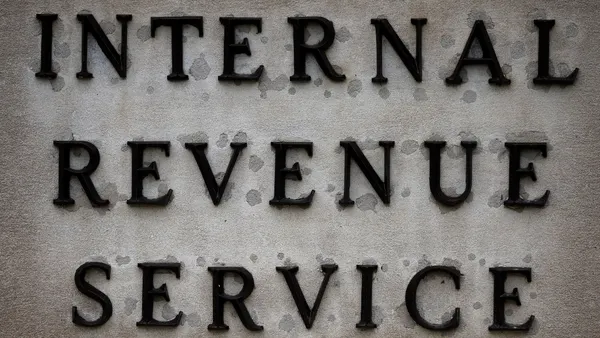Make sure you have a process in place to meet state sales and use tax collection obligations, which have increased significantly since the Supreme Court's Wayfair decision last year, tax experts said in a CFO.com webinar Tuesday.
Under the Wayfair decision, a state has a right to impose sales and use tax collection obligations on your company if it has what's called economic nexus. That's a presence your company has in the state because of the volume or dollar amount of transactions conducted there.
Economic nexus represents a significant escalation of your potential obligation to collect taxes because it can apply regardless of whether your company has a physical presence in the state.
"It's just one more way for states to require you to collect and pay sales tax," Mike Fleming, founder of Sales Tax and More, said in the webinar.
Each state applies economic nexus differently, but several are taking their lead from South Dakota, which brought the Wayfair case to the Supreme Court. That state imposes the tax collection liability if a company does at least 200 transactions a year or involves sales of $100,000 or more in the state.
Determining economic nexus is straightforward if you sell products. It's more complicated if you're a service provider. You need to check on a state-by-state basis what services are subject to the obligation. "Some states tax most services, some just a few, and some list what services exactly are subject to the obligation," said Sandra Schaper, senior manager at ResMed.
If your company provides a platform for sales but isn't itself selling anything, it can still be considered a marketplace facilitator, which states are treating as a retailer. And so it would have to register to collect tax, Schaper said.
Assess risk of noncompliance
To gauge exposure under expanded nexus, company leadership can do a self-assessment of where they should be registered as collectors of sales and use taxes. "The umbrella question you want to ask is, 'Where am I registered, and am I registered in every state I need to be registered in?'" Schaper said.
Start with anywhere you have a legacy physical nexus, and that includes where you have an office, a warehouse of inventory or fulfillment center, or traveling salespeople. Next, assess where you have new economic nexus by determining which states you do the minimum sales volume or transaction size. That requires you to factor in each state's thresholds.
Then assess whether your buyers are taxable. The biggest category of nontaxable buyers are companies that are purchasing your goods or services for resale to other buyers. "When you're purchasing for resale, you're not required to pay the tax but charge the tax to the end-buyer," Schaper said.
Even if you're selling to a nontaxable buyer, the obligation is on you to have documentation — an exemption certificate — showing your buyer doesn't have to pay tax and will charge the tax to the end-buyer.
That makes it important for you to maintain your exemption certificates in a way that keeps them organized, up to date and easy to access and submit to the state.
If you discover you should have been collecting tax but haven't been, states typically make it possible for you to disclose that and seek a penalty waiver.











